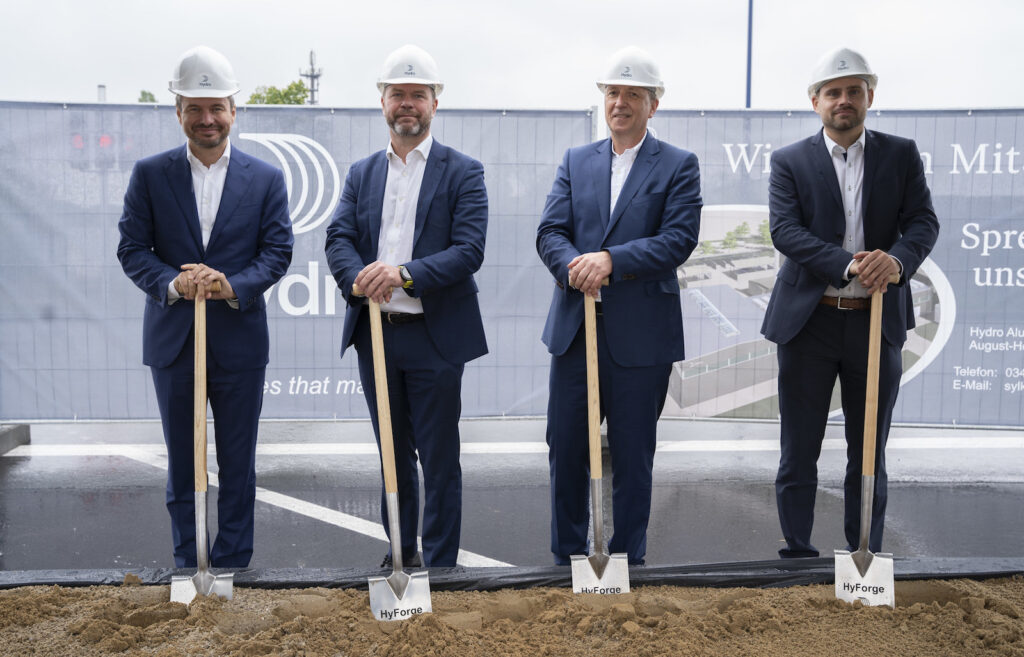Hydro held a groundbreaking ceremony, marking the start of construction of a €40 million expansion of its aluminum recycling plant in Rackwitz, Germany. The expansion will enable the plant to increase production of HyForge forging stock, while also increasing the use of post-consumer, end of life scrap.
“With more automotive customers putting emphasis on sustainability, we are taking this break-through step at Rackwitz to produce aluminum HyForge products, resulting in even smaller diameter billets, while ensuring a best-in-class climate footprint through using a high share of post-consumer scrap in the process,” said Eivind Kallevik, executive vice president Hydro Aluminium Metal. “The business case shows that it is not only profitable, but it also has an important sustainability dimension, and it brings us closer to reaching our ambitious recycling targets.”

With the automotive industry putting emphasis on light-weighting and sustainability for several decades, there has been continuous growth in the use of aluminum. This is due to the material’s light weight, excellent mechanical properties, corrosion resistance, and processing possibilities. Aluminum plays a significant role in the lightweighting of electric and hybrid vehicles, as cars need less electricity and fewer or smaller batteries to travel the same distances.
Closed die forging represents one of the many sectors seeing an increased use of aluminum for vehicle components, such as wheel suspensions. Forging stock generally has a smaller diameter than traditional aluminum billet, and requires a superior surface quality. Because of this, producing forging stock is generally a multi-step process, which involves casting the aluminum billet and then scalping the billet to remove inverse segregation zone.
Hydro has simplified this process with the new low pressure casting (LPC) technology, which can produce high-quality forging stock in a single step. This HyForge ingot may be forged directly into high-quality automotive components.
The Rackwitz recycling plant currently produces around 95,000 tonnes of extrusion ingot per year. With the expansion, the facility will be able to produce an additional 25,000 tonnes of ingot per year, which will be in the form of HyForge ingot. The expansion will also increase the recycling of post-consumer scrap as a major raw material for new products in the plant. It will also add 20 new employees.
“We have a strong collaboration and partnership with the automotive industry, and with the introduction of HyForge, our position as a preferred partner will only get stronger,” said Thomas Stuerzebecher, managing director, Hydro Aluminium Metal Rackwitz. “Our Rackwitz plant is located close to Hydro’s key automotive customers and scrap sources. Together with the HyForge product this is an ideal fit when it comes to the high-quality standards and rapidly increasing focus on sustainability in the automotive industry.”
The new facility is expected to be operational by end of first quarter 2023.
